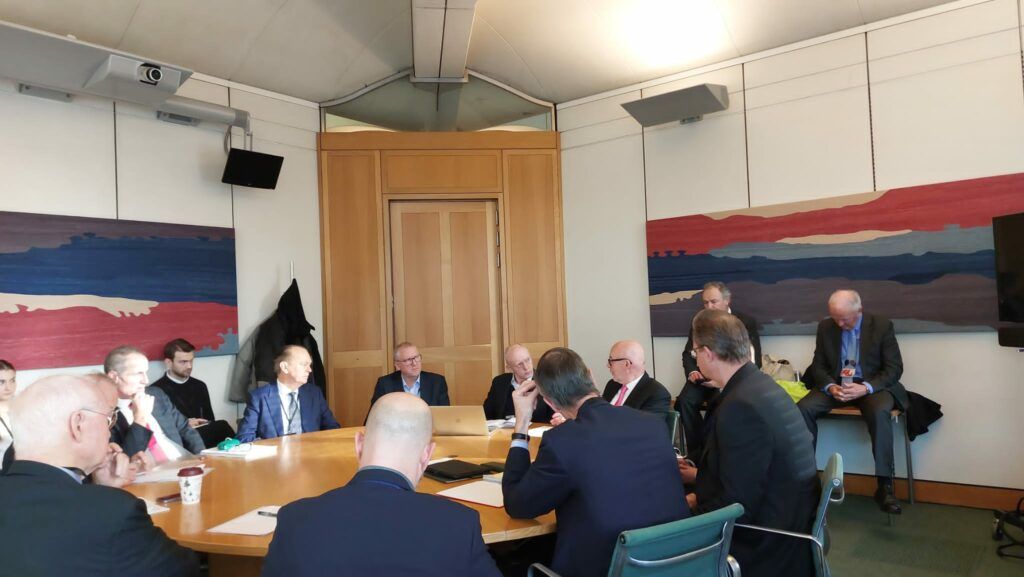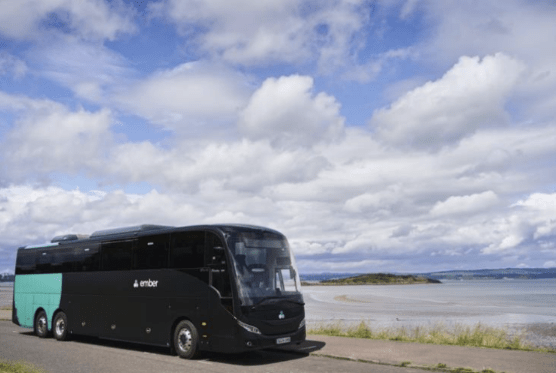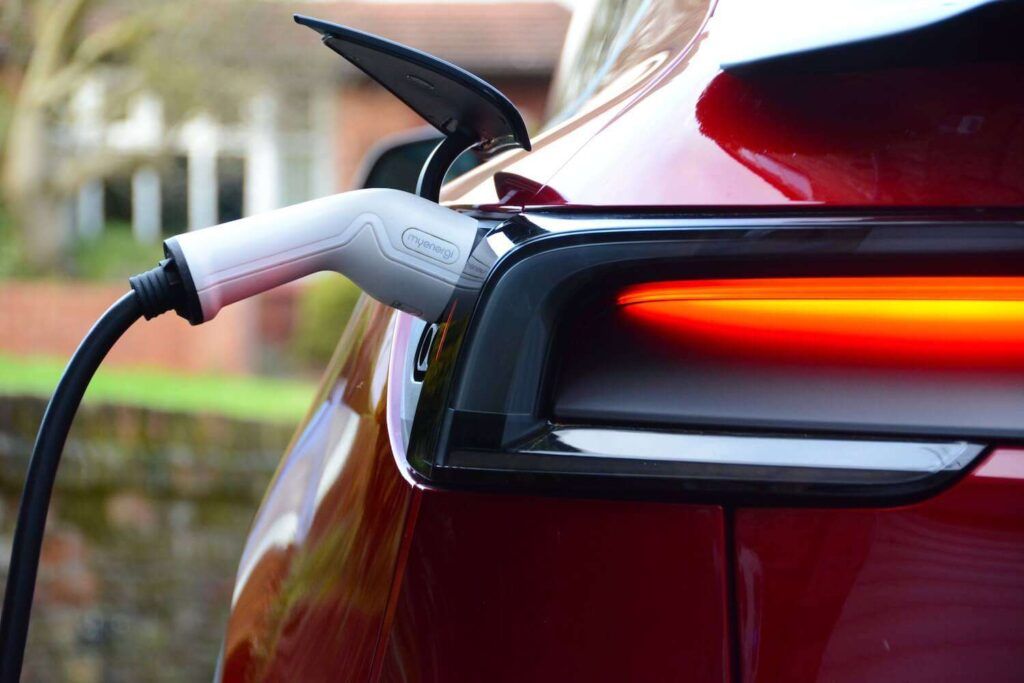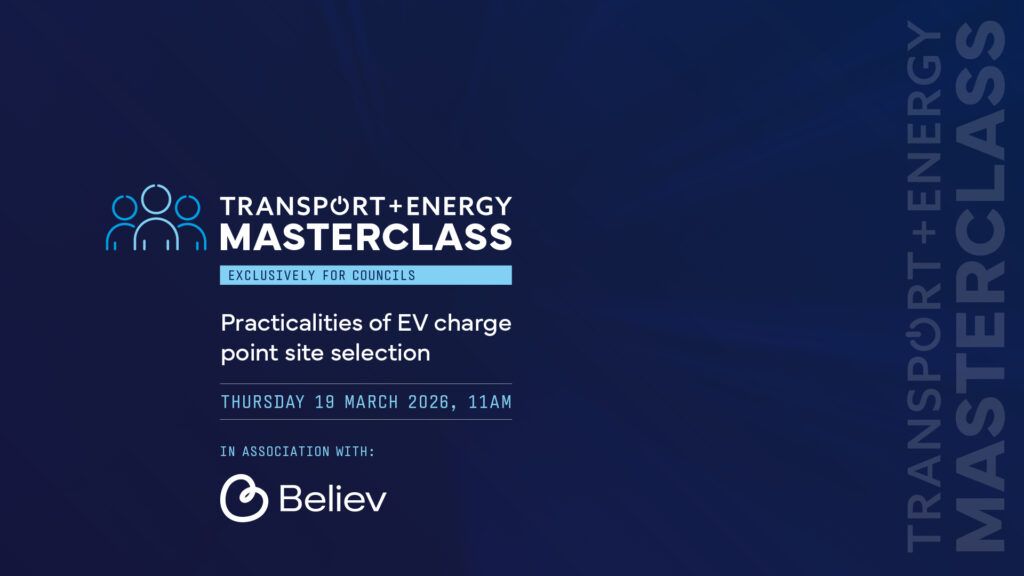MPs from the All-Party Parliamentary Group (APPG) on Electric Vehicles have heard about the work being done to speed up connections to the grid and help enable quicker electric vehicle charger activation.
Earlier this year the UK’s Electricity Networks Commissioner Nick Winser published an independent report setting out recommendations to halve the total development time for transmission infrastructure.
The report sets out plans to bolster the country’s energy security and ensure the UK is taking full advantage of its position as a leader in renewables. It suggests that new power lines can be built in half the time and confirms that, while challenging, speeding up the delivery of strategic electricity transmission lines is “vital and achievable”.
Mr Winser, who presented to members of the APPG at a meeting on Wednesday (29th November), said: “The Electricity Networks Commissioner report supported by a detailed companion report by Energy Systems Catapult – set out plans to halve the time it takes to deliver strategic transmission lines from 14 years to seven – an all-important ingredient if we’re to rapidly increase our reliance on low carbon technologies and energy. This includes the uptake of electric vehicles (EV), which are beginning to reach mass market consumers, with a 16.3% market share of new car sales in 2023.
“Further work by the Catapult for the EV Energy Taskforce delivered whole systems modelling to assess future uptake of zero emission cars and vans, the required charging infrastructure needed and the impacts on the energy system.
“Seven chargepoint types were included in the modelling – including primary charging locations like home or commercial depots, through to different types of near-home, en-route and destination chargers. The scenarios suggested we could see over 15 million home-based slow chargers by 2035, perhaps 60,000 rapid chargers for topping up en-route and around half a million public chargers in total.
“While enabling smart charging will be crucial to reducing the need for network reinforcement by shifting demand peaks and providing vital flexibility, electrifying transport will substantially increase demand on the power system. Our modelling suggests demand from electric cars and vans could reach over 50TWh by 2035, around 14% of total demand, which is the equivalent of 2/3 of the electricity consumed by homes today.
“The Government’s acceptance of my recommendations in the Autumn Statement is great news for consumers, and will help to deliver reduced transmission costs, accelerate the pace of renewable energy deployment and in turn support the roll-out of electric vehicles and associated charging infrastructure.
“Now is the time to take action to implement these recommendations, increase our use of low carbon energy, cut the time it takes to build much-needed energy infrastructure and ensure we are on track for Net Zero.”
The REA, which acts as the Secretariat for the APPG on EVs and runs the electric vehicle (EV) trade group RECHARGE UK, also arranged for Ken McMeikan, Chief Executive of Moto Hospitality to speak to the MPs.
Mr McMeikan has previously warned that a lack of grid connections was preventing the motorway service operator from installing enough car chargers to meet the surge in demand at UK’s motorway service stations.
Ken McMeikan, CEO of Moto Hospitality, said: “While we welcome the Government’s decision to transform the planning system in favour of delivering low-carbon energy projects, the prioritisation of EV charging hubs and the acceptance of the Winser review’s recommendations in full, it is critical that the Government recognises that the pace of change still needs to be faster.
‘’Moto alone requires 12 times the amount of the power we need today in just 7 years’ time and the planning changes are likely to take too long to affect delivery of power over the next 2-3 years. I am urging the Government to accelerate the availability of sufficient power to major travel hubs like Motorway Service Areas and to declare the strategic road network as a national priority for power. We stand ready to work with the Government during its consultation to inform its plans and ensure they are delivered as quickly and effectively as possible.”
Toby Poston, Director of Corporate Affairs at the British Vehicle Rental and Leasing Association (BVRLA), commented:
“The current grid connections process is a frequent sticking point for our members – and their customers – looking to invest in greener solutions. Companies nationwide are ready to accelerate the transition to electric vehicles. Their enthusiasm is being dampened by delays, red tape and operational obstacles. Inconsistencies of approach between DNOs are exacerbating the challenges of an already complicated process.
“It is encouraging to see steps are being taken to overcome this grid grind that is stalling the roll out of new EV charging infrastructure. The Connections Action Plan and OZEV review will begin to address these concerns and make EVs viable for more. It should streamline and simplify the grid connections process, enabling more to make the move to electric vehicles sooner. We continue to work closely with the Energy Networks Association (ENA) and its DNO members on ways to support fleets as they electrify their sites.”
Industry pressure has already seen changes being made to both the transmission and distribution network.
Energy regulator Ofgem announced new rules to speed up electricity grid connections for viable projects and allow stalled or speculative developers to be forced out of the queue.
The new queue management milestones will be implemented by the UK grid’s operator, National Grid ESO, from 27 November, and will terminate stalled projects that are blocking the queue for high-voltage transmission lines and means ready-to-go generation and storage to enable net zero can be fast-tracked.
The APPG on Electric Vehicles aims to “engage parliamentarians interested in electric vehicles. The group consider issues relating to manufacturing, energy supply, infrastructure requirements, and safety, amongst others.’’
The group is chaired by Matt Western, Labour MP for Warwick and Leamington.
Matthew Adams, Transport Policy Manager at REA, said: “The REA were able to bring together actors from across the electric vehicle sector to the EV APPG, including Electricity Networks Commissioner Nick Winser, Moto, BVRLA, Honda and FairCharge, to discuss the issue that unites all of these very different parts of the energy and EV space: grid connections.
‘’Nick Winser’s insightful transmission network review has already seen the Government make significant changes to both the transmission and distribution network. RECHARGE UK and the wider REA membership have consistently pointed to grid connections as a significant barrier to chargepoint or renewable energy deployment and we were pleased to see that some of our recommendations have been actioned.
‘’Our unique whole systems approach to policy enables us to bring together actors from across the wider system together to unite and become a powerful voice for change, and I’m delighted our members voices and the wider industry have been heard by so many engaged Parliamentarians this week who want to see the EV transition succeed.”
Image courtesy of REA.












